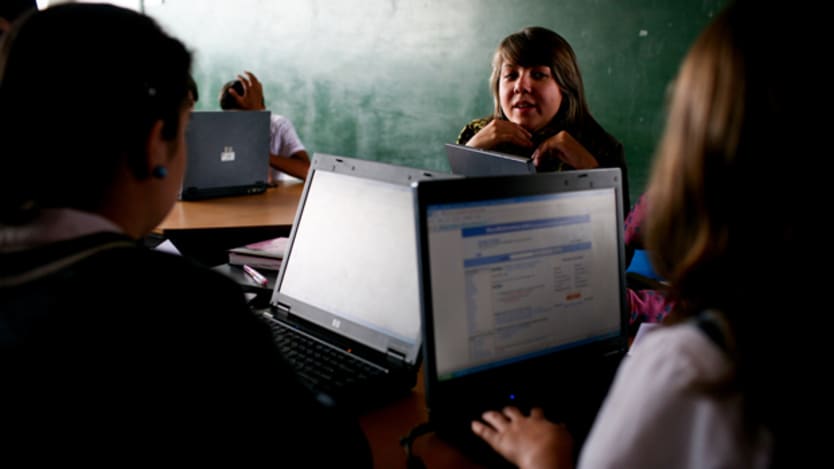
The relevance of education and skills for economic and social progress cannot be overstated.
In a globalized knowledge-based economy, skills are a major driver of labor productivity and of an economy’s ability to sustain its competitiveness and escape development traps. Building the right sets of skills has emerged as a major determining factor for people and economies to participate meaningfully in the global economy.
In a way, as the Organization for Economic Cooperation and Development has put it, “skills have become the global currency of the 21st century.” In addition, education has an impact on social progress through improvements in social mobility and social cohesion, supporting an inclusive pattern of growth. All this is particularly relevant in a region like Latin America and the Caribbean, where growth is slowing down and potential growth is undermined, and where large inequality and poverty levels remain as one of the main development challenges.
OECD Development Week, organized by the OECD Development Center, offers a unique opportunity to share knowledge and discuss policy options around these issues in the context of an engaged dialogue among development actors from OECD and non-OECD countries.
The education system in Latin America has shown important improvements in coverage and access in recent years. However, the quality of education is still below needs. The latest results of PISA 2012 — which assesses 15-16 year olds in the areas of mathematics, science and reading — offer an unimpressive panorama. In all subjects, the 9 participating countries are in the lowest third of the distribution. This means that the average Latin American student only attains very basic levels of performance in PISA, illustrating the difficulty in interpreting and solving basic questions. The differences among the countries in the region are small, and despite some modest improvements over the last decade, the region is still far from other emerging regions, Asia in particular, in terms of educational outcomes.
Moreover, the education performance in the region is not only low but also unequal. In no other region in the world do the results of students depend as much on their socioeconomic background as in Latin America. The allocation of school resources, from teachers to infrastructure, shows how unequal education systems remain. These disparities are also visible in other dimensions, in particular between girls and boys, with boys outperforming girls in math tests, and in terms of geographical disparities, with large variations in performance at the subnational level in countries like Brazil, Mexico and Colombia.
One of the main challenges of the education system is related to its pertinence, and the extent to which it favours the participation of individuals in labor markets and its connection with the needs of the economy. In this regard, 37 percent of firms in the region state that they face difficulties finding an adequately trained labor force. In particular, technical skills seem to be particularly scarce, while soft skills (like critical thinking, interpersonal skills, or the ability to communicate and to solve complicated situations) are the most demanded by firms. This reflects areas where the education system should improve its performance in order to better equip individuals with the skills demanded by the economy. Policies to better understand the evolution of labor market demands, to strengthen vocational education and training systems, or to favor an easier transition from school to jobs, among others, are of the utmost importance.
In recent years, however, efforts have been made to improve the education system, particularly in terms of quality, which may take some years to become visible.
Early childhood programs have been extended, even if access to pre-primary remains a privilege. Programs and reforms to improve the tainted status of the teachers’ profession have aimed to attract better and more accomplished professionals. They aim at building leadership and creating a sense of community among education professionals. Introducing national and international assessment systems and improving the information on the students and policies has been an important step in some countries for guiding and monitoring policies.
Decentralization reforms aiming at giving higher autonomy to schools in some areas have improved performance, though in some cases at the cost of inequality. The transformation of tertiary education, after a period of liberalization and the entry of private institutions, has been significant. The role of vocational education and training becomes even more relevant to favor a better matching between the supply of skills from the education system and the demand by the economic sector.
The different sets of reforms and education policies introduced in recent years denote the interest of the region for improvement, and policy makers are aware of the critical role of education.
However, to be successful, the implementation of reforms needs to be conducted in a systematic way, and requires taking into account the context and the actors involved. The experience of OECD economies as well as of many emerging economies in this regard can be useful to explore these issues.
Join the Devex community and access more in-depth analysis, breaking news and business advice — and a host of other services — on international development, humanitarian aid and global health.






